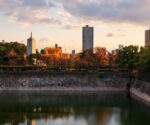The empty remote island ‘owned by Britain’ 3,000 miles from nearest neighbour | World | News
Hidden deep in the South Pacific, more than 3,000 miles from the nearest major landmass, lies Henderson Island, an uninhabited British territory that remains one of the most remote and pristine ecosystems on Earth. But while its isolation has helped preserve its fragile environment for centuries, a modern global threat has now reached even this far-flung atoll.
Part of the Pitcairn Islands, Henderson Island sits almost 5,000 miles from the UK and is accessible only by lengthy boat journeys. It is home to four bird species found nowhere else on the planet – the Henderson crake, fruit dove, lorikeet, and reed warbler. Its distance from human settlement has long protected these rare creatures from many of the environmental pressures faced elsewhere.
The island’s rugged terrain, lack of fresh water, and complete absence of infrastructure have kept tourism at bay.
Few people ever visit Henderson, and for those who do, it is largely for scientific research or conservation work.
For ecologists, the island offers a valuable insight into how ecosystems evolve in isolation, a near-untouched living laboratory.
However, Henderson’s remoteness hasn’t shielded it from the broader consequences of global pollution.
In recent years, scientists have been alarmed to discover that the island’s beaches are now littered with plastic debris.
Ocean currents in the South Pacific gyre act like a conveyor belt, sweeping vast quantities of plastic waste from around the world directly onto Henderson’s shores.
In fact, studies have found the island has one of the highest densities of plastic pollution anywhere on the planet.
Despite having no permanent residents, the UK remains responsible for the protection and management of Henderson Island.
As a British Overseas Territory, its unique biodiversity and fragile ecosystem fall under the UK’s environmental stewardship, a duty that now includes addressing the impact of human waste washing up on its remote beaches.







